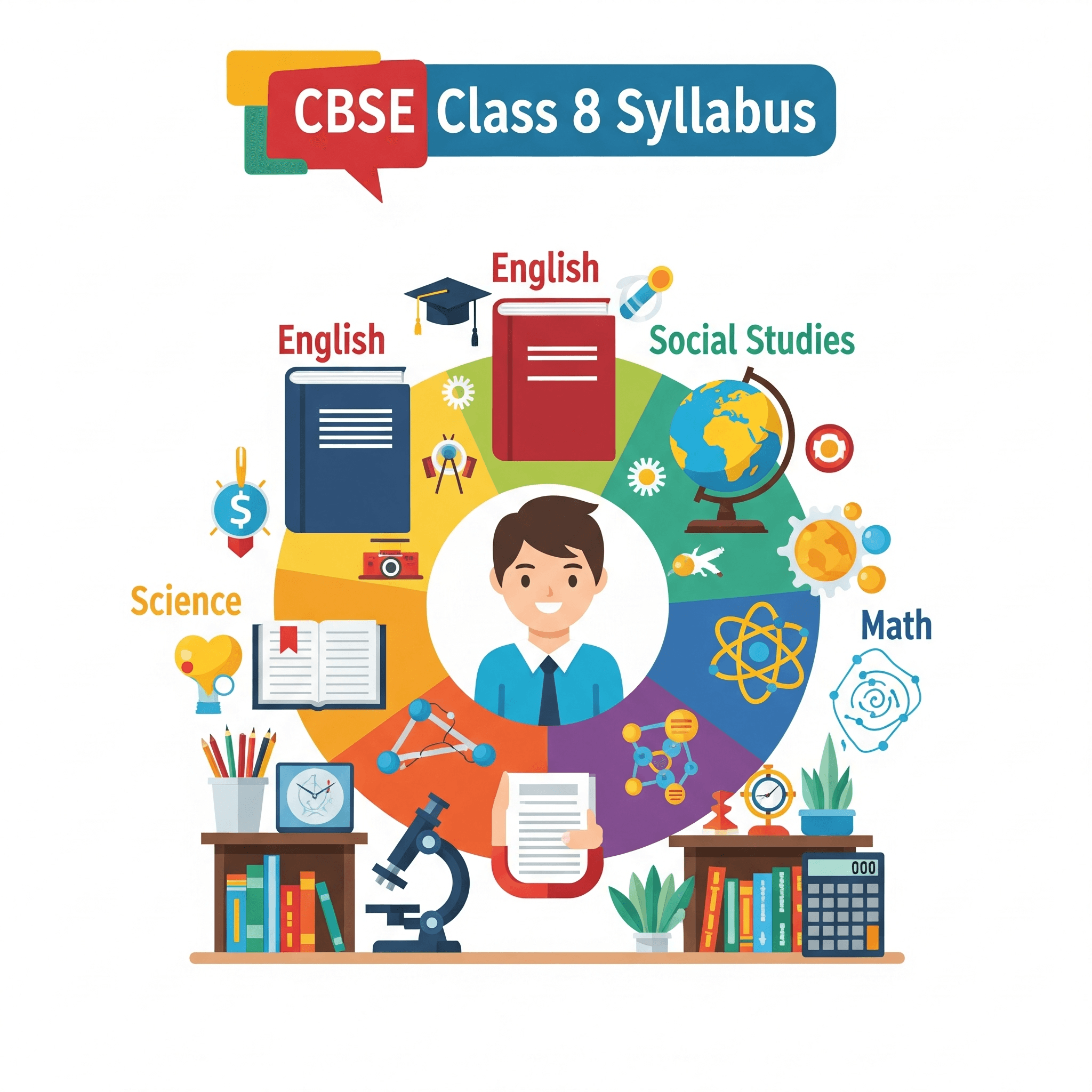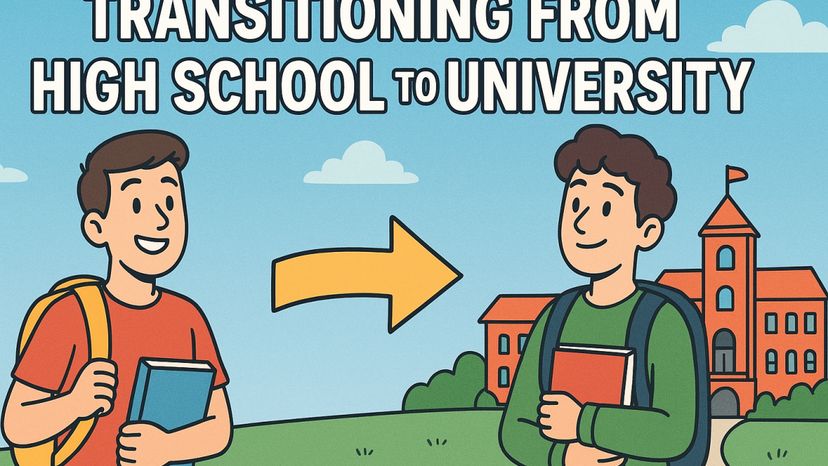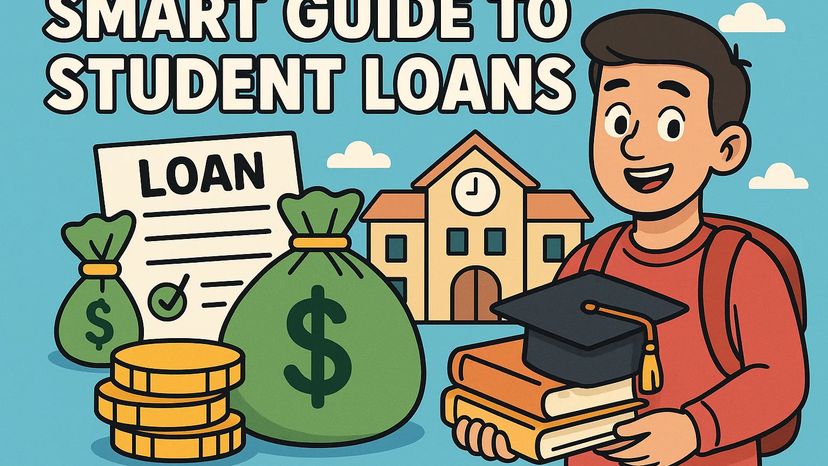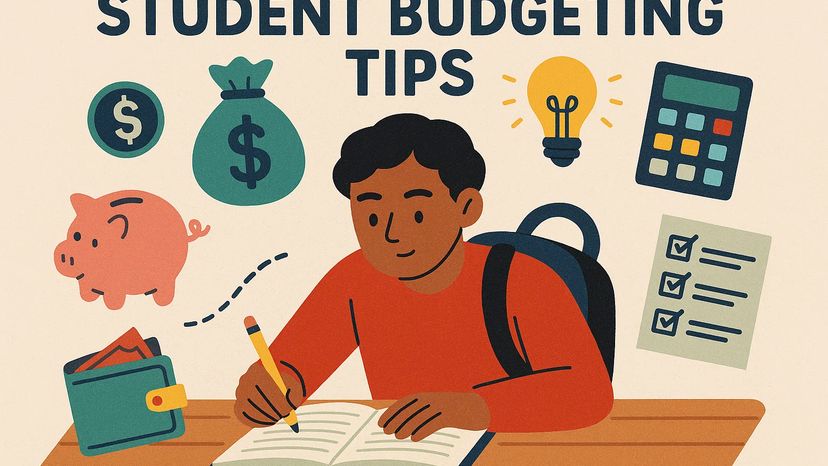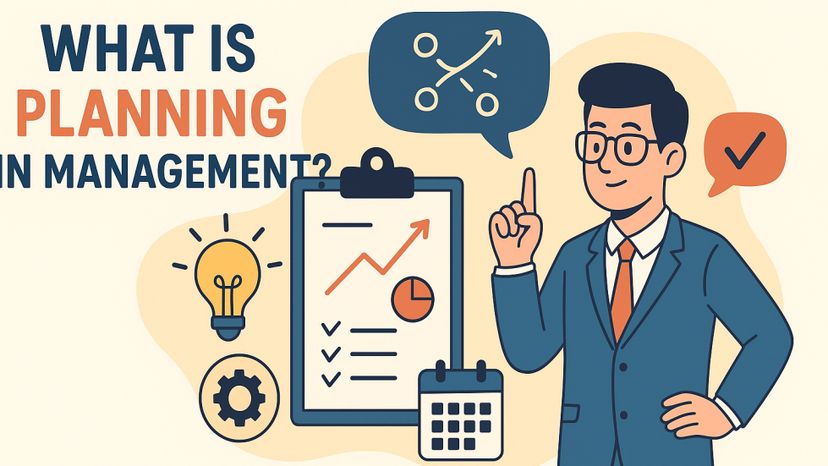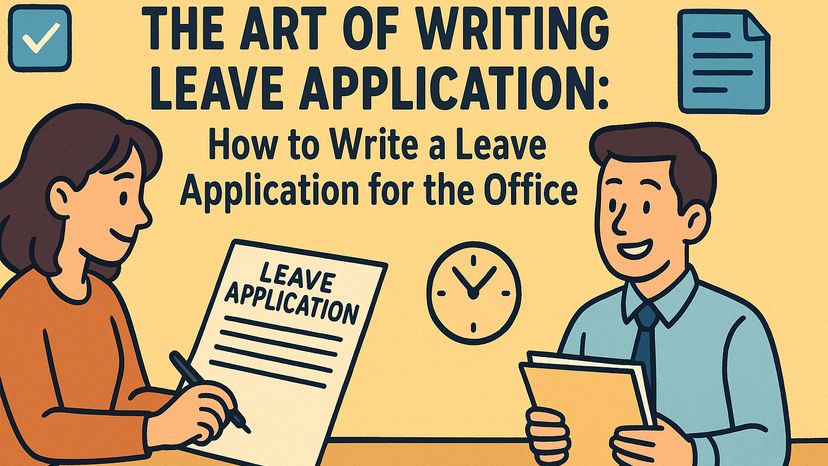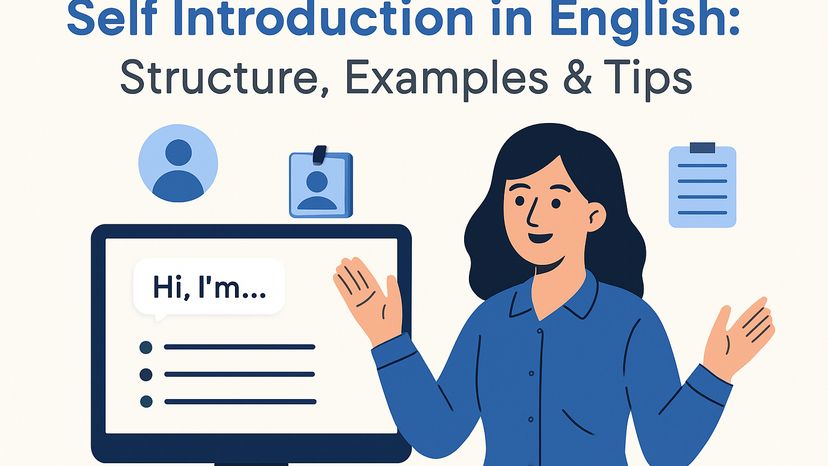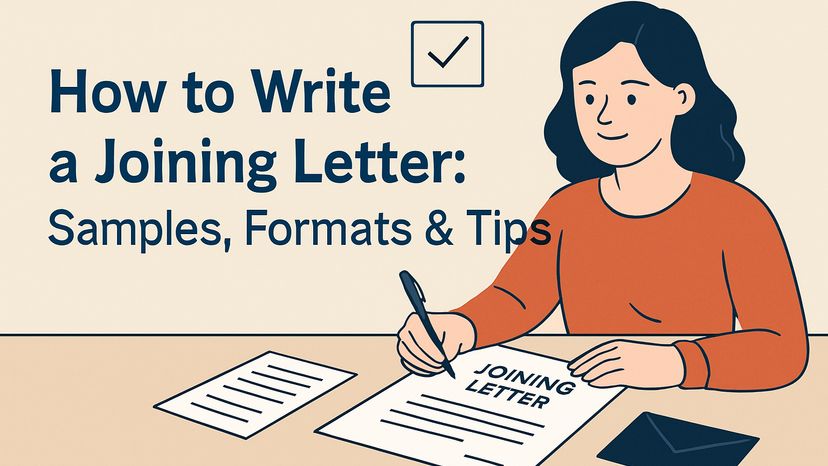Just completed your 7th and are ready to step into 8th std? I bet you may have passed your previous std with wonderful grades. As 8th std is not much of a challenge, but when it comes to CBSE we already know the studies are one step ahead. Many of the students love to occupy their vacations by being pre-informed of the syllabus and keeping their study material. Does that refer to being a nerd? Well, many people may call you a nerd for studying your next class syllabus and topics beforehand but don't let that voice stop your curiosity. And to kill your curious mind this blog will fill the void inside giving you the perfect information and step-by-step syllabus of cbse 8th class all subjects. 8th std is the base to make a decision of what you want to pursue further, there are many competitive exams you can look into from 8th onwards.
Doesn't this blog come as a saviour to you?
Till the end of this blog, you will get the complete guide into the CBSE class 8 syllabus, and that too for all subjects. Also, if you are confused about whether to continue the CBSE board further or not why don't you clear your doubts? Or on the contrary, take the help of expert counsellors.
The CBSE syllabus is structured around following the NCERT [National Council of Educational Research and Training] textbooks.
Let's ride into class 8 subject syllabus specifically designed for you.
Before that let’s see the CBSE 8th class subject list for your reference:
- English
- Hindi
- Science
- Maths
- Social studies [History, Geography, Civics, and Economics]
CBSE CLASS 8 ENGLISH SYLLABUS
The CBSE class 8 English syllabus is all about poetry, novels, literature, communication, grammar, and writing skills. Here is the brief rundown of class 8 English chapters.
- English literature
- Honeydew
Prose chapters:
- The best Christmas present in the world.
- The Tsunami.
- Glimpse of the past.
- Bepin Choudary’s lapse of memory.
- The Summit within
- This is Jody’s fawn
- A visit to Cambridge
- A Short Monsoon Diary
Poems chapter:
- The Ant and the Cricket
- Geography Lesson
- Macavity: The Mystery Cat
- The Last Bargain
- The School Boy
- The Duck and the Kangaroo
- When I set out for Lyonnesse
- On the Grasshopper and Cricket
2. Grammar:
- Parts of Speech
- Tenses
- Active and Passive Voices
- Direct and Indirect Speech
- Order of Words and Clauses
- Phrases and Idioms
- Vocabulary
- Comprehension Reading
- Modals
- Subject-verb concord
- Punctuation
- Conditional clauses
- Non-finite
- Cohesive devices
3. Writing Skills [composition]
- Essay Writing
- Story Writing
- Notice Writing
- Diary entry
- Informal and Formal Letter Writing
CBSE CLASS 8 HINDI SYLLABUS
The CBSE class 8 Hindi syllabus includes areas such as Hindi literature, poetry, prose, grammar, and writing skills. Here is the rundown for class 8 Hindi textbook lessons for you:
1. Literature
A. Vasant
- लाख की चूड़ियां [कहानी]
- बस की यात्रा [व्यंग]
- दीवानों की हस्ती [कविता]
- भगवान के डाकिया [कविता]
- क्या निराश हुआ जाए [निबंध]
- यह सबसे कठिन समय नहीं [कविता]
- कबीर की सखियां
- सुदामा चरित [कविता]
- जहां पहिया है
- अकबरी लोटा [कहानी]
- सूरदास के पद [कविता]
- पानी की कहानी [निबंध]
- बाज और सांप [कहानी]
B. DURVA
- चिट्ठियों मैं यूरोप
- ओस
- नाटक मैं नाटक
- सागर यात्रा
- उठ किसान ओ
- सस्ते का चक्कर
- एक खिलाड़ी की कुछ यादें
- बस की सैर
- हिंदी ने जनकी ज़ंदगी बदल दी
- आषाढ़ का पहला दिन
- अन्याय के खिलाफ
- बच्चों के प्रिय श्री केशव शंकर पिल्लै
- फर्श पर
- बूढ़ी अम्मा की बात
- वह सुबह कभी तो आएगी
- आओ पत्रिका निकले
- आह्वाहन
C. Bharat ki khoj
- अहमदनगर का किला
- तलाश
- सिंधु घाटी सभ्यता
- युगों का दौर
- नयी समस्या
- अंतिम दौ -एक
- अंतिम दौर-दो
- तनाव
- दो पृष्टभूमिया-भारतीय और अंग्रेजी
D. Sankshipt Buddhacharitra
- आरंभिक जीवन
- अभिनिष्क्रमण
- ज्ञान प्राप्त
- धर्मचक्र प्रवर्तन
- महापरिनिवार्ण
2. Grammar
- भाषा, बोली, लिपि, और व्याकरण
- वर्ण विचार
- शब्द विचार
- संधि
- समास
- उपसर्ग
- प्रत्यय
- विलोम शब्द
- पर्यायवाची शब्द
- अनेक शब्दों के लिए शब्द
- मुहावरे और लोकोक्तिया
- वाक्य विचार
- भाषा, बोली, लिपि, और व्याकरण
- वर्ण विचार
- शब्द विचार
- संधि
- समास
- उपसर्ग
- प्रत्यय
- विलोम शब्द
- पर्यायवाची शब्द
- अनेक शब्दों के लिए शब्द
- मुहावरे और लोकोक्तिया
- वाक्य विचार
- पद विचार
- अलंकार
3. Writing skill
- अपठित बोध
- पत्र लेखन
- निबंध लेखन
- कहानी लेखन
- विज्ञापन लेखन
- संवाद लेखन
- डायरी लेखन
- सूचना लेखन
CBSE CLASS 8 SCIENCE SYLLABUS
The syllabus of CBSE class 8 science syllabus is built covering the three major areas that includes Biology, Chemistry, and Physics.
Chapters:
- Crop Production and Management.
- Microorganisms: Friend and Foe
- Coal and Petroleum
- Combustion and Flame
- Conservation of Plants and Animals
- Reproduction in Animals
- Reaching the Age of Adolescence
- Force and Pressure
- Friction
- Sound
- Chemical Effect of Electric Current
- Crop Production and Management.
- Microorganisms: Friend and Foe
- Coal and Petroleum
- Combustion and Flame
- Conservation of Plants and Animals
- Reproduction in Animals
- Reaching the Age of Adolescence
- Force and Pressure
- Friction
- Sound
- Chemical Effect of Electric Current
- Some Natural Phenomena
- Light
CBSE CLASS 8 MATHS SYLLABUS
The 8th class maths syllabus is a combination of basic arithmetic, geometry, algebra, measurement, and data handling. Makes students capable of solving problems, and improves logical thinking.
Chapters:
- Rational Numbers
- Linear Equation in One Variable
- Understanding Quadrilaterals
- Data Handling
- Squares and Square Roots
- Cubes and Cube Roots
- Comparing Quantities
- Algebraic Expressions and Identities.
- Mensuration
- Exponents and Powers
- Direct and Inverse Proportions
- Factorisation
- Introduction to Graph
CBSE CLASS 8 SOCIAL SCIENCE SYLLABUS
CBSE class 8 social science syllabus is structured around four major areas: History, geography, Civics [Political Science], and Economics.
This distribution of the subject ensures students understand the past, present, and future of society and the economics of the society.
UNIT 1
History: Our Pasts-|||
- How, When and Where
- From Trade to Territory: The Company Establishes Power
- Ruling the Countryside
- Tribals, Dikus and the Vision of a Golden Age
- When People Rebel: 1857 and After
- Civilising the “Native”, Educating the Nation
- Women, Caste, and Reform
- The Making of the National Movement: 1870s-1947
- How, When and Where
- From Trade to Territory: The Company Establishes Power
- Ruling the Countryside
- Tribals, Dikus and the Vision of a Golden Age
- When People Rebel: 1857 and After
- Civilising the “Native”, Educating the Nation
- Women, Caste, and Reform
- The Making of the National Movement: 1870s-1947
UNIT 2
Geography: Resources and Development
- Resources
- Land, Soil, Water, Natural Vegetation and Wildlife Resources
- Agriculture
- Industries
- Human Resource
UNIT3
Civics [Political Science]: Social and Political Life-|||
- The Indian Constitution
- Understanding Secularism
- Parliament and Making of Laws
- Judiciary
- Understanding Marginalisation
- Confronting Marginalisation
- Public Facilities
- Law and Social Justice
UNIT 4
Economics: Understanding Economic Development
- What is Economics?
2. Sector of the Indian Economy
3. Money and Credit
4. Globalisation and the India Economy
5. Consumer Rights
FREQUENTLY ASKED QUESTIONS
Q1. How many hours does a student of CBSE class 8th need to study?
ANS: A student of class 8th cbse should dedicate 2-3 hours daily that includes school homework, lessons and assignments.
Q2. Are there any changes in the 2025 syllabus of the 8th class?
ANS: As of now, there are no major changes. But if anything changes, CBSE usually updates the updated syllabus on its official website.
Q3. Which textbooks should one prefer for the Hindi syllabus of the 8th class?
ANS: School may provide the relevant books for the reference although you can check the official website of cbse for any changes in the book edition. Few of the reference books are as follows:
- Vasant part 3 - main textbook
- Durva part 3 - supplementary reader
Q4. Which textbook should one refer to for the English syllabus of the 8th class?
ANS: For English, books listed below can be used for reference and those provided by the school.
- Honeydew - Main Textbook
- It so happened - supplementary reader

